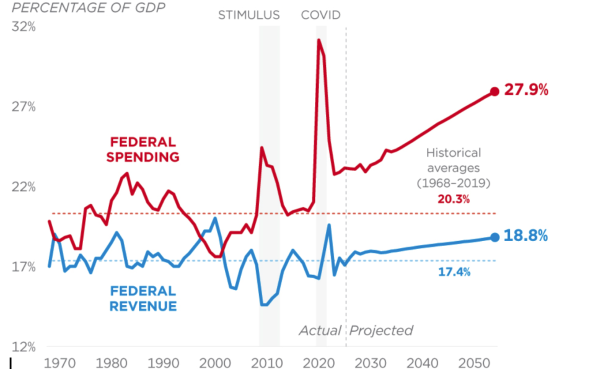Entertainment Weekly Chief Editor Henry Goldblatt Visits School
Everyone seems to wonder, “Which of the peers in a friend group will grow up to be famous?” It could be any one of them; the football jock, the theatre kid, the math genius, anyone! It’s hard to predict who will end up being notably well-known, wealthy, or famous, but at a school like Westminster, there are bound to be some.
Henry Goldblatt currently serves as the editor-in-chief of Entertainment Weekly, a popular entertainment and pop-culture magazine. Among many other honors, Goldblatt was recently awarded the 2018 Lisa Ben Award for Achievement in Features Coverage for his role in promoting acceptance and diversity in journalism and media. He grew up in Lexington, Michigan, and was once a normal high-school student, too. As a teenager, Goldblatt certainly had no intention of becoming a nationally acclaimed magazine editor; his interest in journalism began during his college years at the University of Michigan, where he was a reporter for the school newspaper, The Michigan Daily. He ended up working in the top editorial position there. After college, Goldblatt went to journalism graduate school at Northwestern, the best journalism school in America. Since then, he has gone on to become a successful reporter, writer, and editor. Along the way, he worked for celebrity magazine People and business magazine Fortune.
On Friday, February 7, Westminster was fortunate enough to host Goldblatt for an hour-long discussion about writing, journalism, and the industry. The conversation was attended by motivated students passionate about writing.
Goldblatt is well known for promoting representation of the LGBTQ community in his company’s publications. Under Goldblatt’s leadership, Entertainment Weekly now annually publishes an LGBTQ special issue. “We want the magazine to reflect diversity,” says Goldblatt.
He not only wants to promote diversity in the content produced, but diversity in the people behind it as well. Goldblatt also commends the upcoming generation’s acceptance of diversity and inclusion. “It’s like night and day,” he says when comparing Gen Z to the social environment that he grew up in. He sees the upcoming generation as especially “socially-conscious,” a trait he predicts will help them in the future as they join the workforce.
Goldblatt has also made important strides in adapting his company to the digital age of media. In a time of constantly progressing technology, the internet has quickly become the foremost platform for any sort of information. Now that everyone has the World Wide Web at their fingertips, consumers are becoming far less interested in print publications. This has led to a dramatic plummet in the sales of paper magazines and newspapers, a change that many companies have been unable to adapt to. This drastic change in media platforms has resulted in a multitude of once successful companies downsizing their workforce and publications or going out of business altogether. Goldblatt views the downfall of these companies as a grim reminder of the importance of staying up to date with the progressing digital age. “It’s important to make sure that we’re delivering content wherever people are consuming it,” says Goldblatt. Regardless of the shifting interest from print to technology, it’s crucial to be aware of the changing times and how they play a role in journalism.
Underneath all his fame and prestige, however, is a goofy, fun-loving guy. When asked what his favorite movie is, Goldblatt jokingly remarked that he should say something like The Godfather 2, but instead opts for the 1980s rom-com When Harry Met Sally. Debate coach Jordana Sternberg is a high school friend of Goldblatt’s. She remembers him as a motivated, organized student who always looked out for others. “It doesn’t surprise me that he’s become successful; it’s a little surprising that this is the area in which he’s become successful,” Sternberg remarks.
Goldblatt was not involved in journalism in his high school years; his journalism career didn’t commence until college. “You never know what direction you’re gonna end up in,” says Sternberg. “You might think you know what you’re planning to do coming out of high school, but things change.”
Goldblatt is a classic example of this. Even though Goldblatt didn’t express interest in journalism during high school, Sternberg remembers his tenacity and determination to get his work done correctly and well. These traits served a key role in his later success, and still help him today in his career.
Goldblatt’s discussion was also well-received by students interested in journalism and writing. Goldblatt’s story of his journey to the top of the journalism industry captivated students. Senior Jessica Lao found the start of Goldblatt’s career to be particularly interesting. “For me it was astonishing, the fact that he didn’t write during his high school career at all,” she says.
Goldblatt clearly left students with an important bit of unspoken advice: it’s never too late to dive into something new. Many people hold the common belief that in order to have expertise in a certain field, it is vital to start in this field as early as possible. Goldblatt didn’t become interested in journalism until his sophomore year in college, and is now one of the most well-known names in the industry. As Lao points out, a successful person is usually someone who is exceptionally good at something they love. “You could tell that he didn’t seem super stressed or angry about his job,” says Lao. It isn’t difficult to see that Goldblatt maintains an easygoing, joyful demeanor. His job, clearly, is in no way a negative factor in his life.
Not everyone can turn out as successful as Goldblatt. But learning from his career and life can certainly serve as motivation for anyone looking to work in a field that they are passionate about.




